

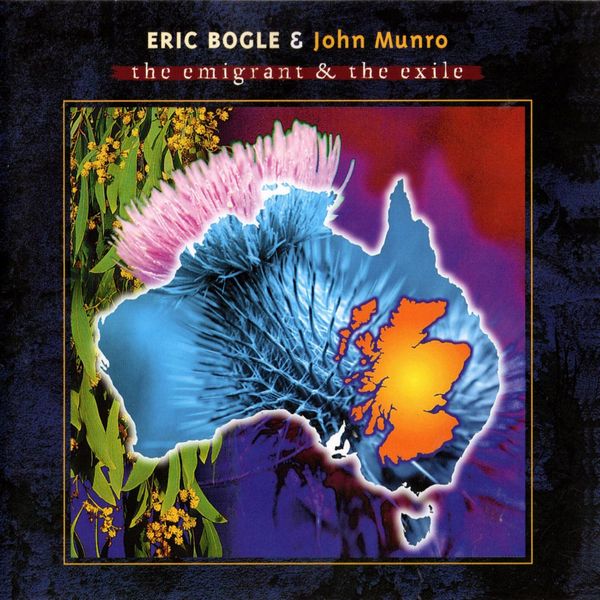 |
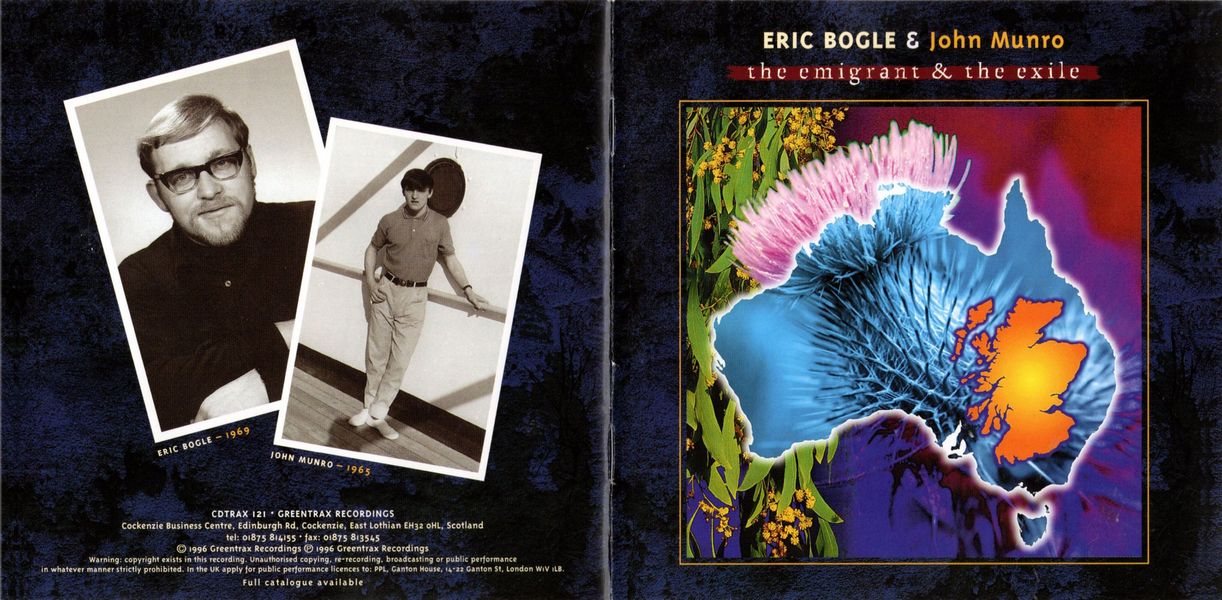
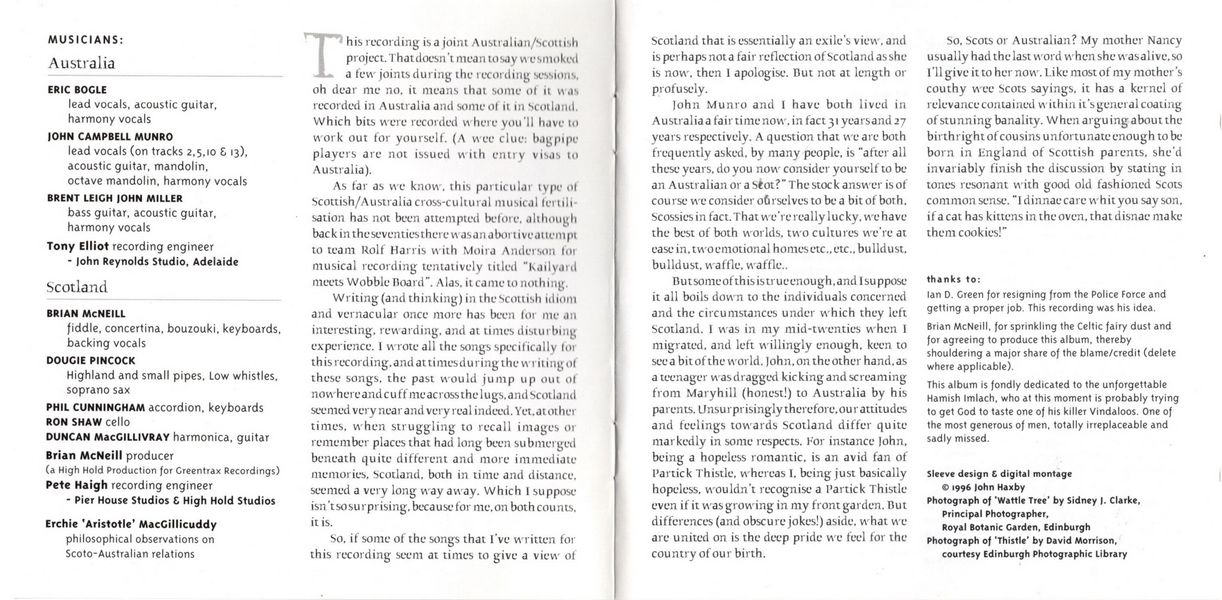 |
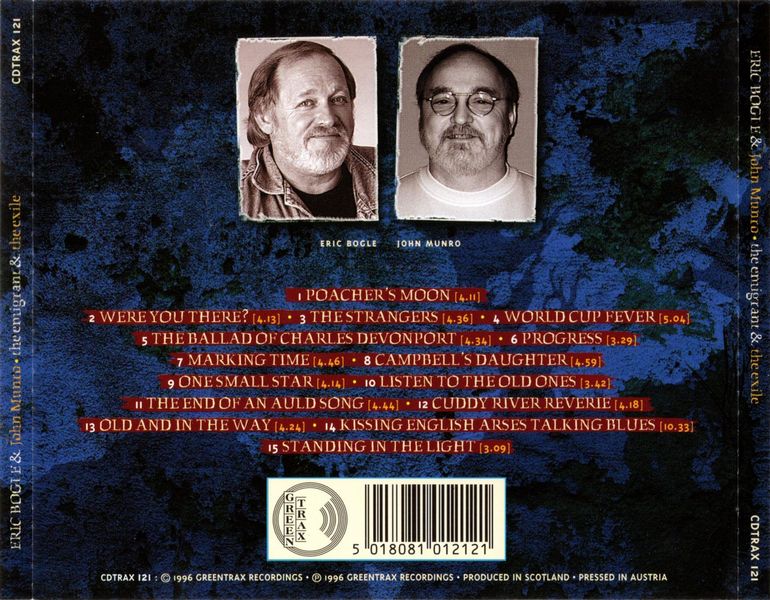
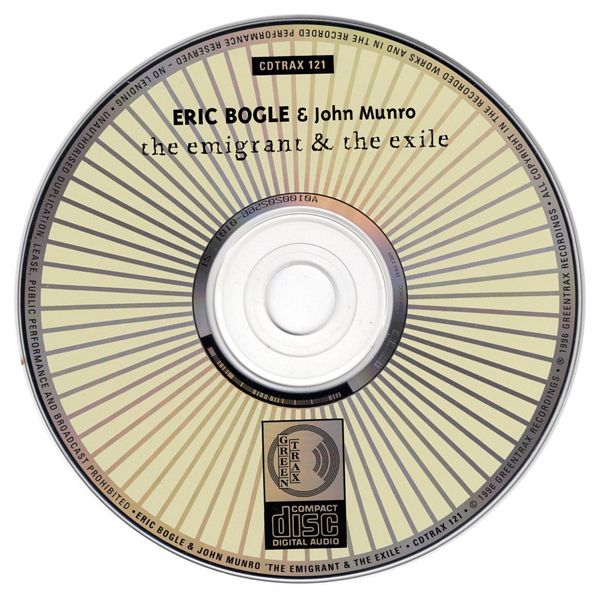 |
| more images |
Sleeve Notes
This recording is a joint Australian/Scottish project. That doesn't mean to say we smoked a few joints during the recording sessions, oh dear me no, it means that some of it was recorded in Australia and sonic of it in Scotland. Which bits were recorded where you'll have to work out for yourself. (A wee clue: bagpipe players are not issued with entry visas to Australia).
As far as we know, this particular type of Scottish/Australia cross-cultural musical fertilisation has not been attempted before, although back in the seventies there was an abortive attempt to team Rolf Harris with Moira Anderson for musical recording tentatively titled "Kailyard meets Wobble Board". Alas, it came to nothing. Writing (and thinking) in the Scottish idiom and vernacular once more has been for me an interesting, rewarding and at times disturbing experience. I wrote all the songs specifically for this recording. And at times during the writing of these songs, the past would jump up out of nowhere and cuff me across the lugs, and Scotland seemed very near and very real indeed. Yet, at other times, when struggling to recall images or remember places that had long been submerged beneath quite different and more immediate memories, Scotland, both in time and distance, seemed a very long way away. Which I suppose Isn't so surprising, because for me on both counts, it is.
So, if some of the songs that I've written for this recording seem at times to give a view of Scotland that is essentially an exile's view, and is perhaps not a fair reflection of Scotland as she is now, then I apologise. But not at length or profusely.
John Munro and I have both lived in Australia a fair time now, in fact 31 years and 27 years respectively. A question that we are both frequently asked, by many people, is "after all these years, do you now consider yourself to be an Australian or a Scot?" The stock answer is of course we consider ourselves to be a bit of both, Scossies in fact. That we're really lucky, we have the best of both worlds, two cultures we're at ease in. two emotional homes etc., etc., bulldust, bulldust, waffle, waffle.
But some of this true enough, and I suppose it all boils down to the individuals concerned and the circumstances under which they left Scotland. I was in my mid-twenties when I migrated, and left willingly enough, keen to see a bit of the world. John, on the other hand, as a teenager was dragged kicking and screaming from Maryhill (honest!) to Australia by his parents. Unsurprisingly therefore, our attitudes and feelings towards Scotland differ quite markedly in some respects. For instance John, being a hopeless romantic, is an avid fan of Partick Thistle, whereas I, being just basically hopeless, wouldn't recognise a Partick Thistle even if it was growing in my front garden. But differences (and obscure jokes!) aside, what we are united on is the deep pride we feel for the country of our birth.
So, Scots or Australian? My mother Nancy usually had the last word when she was alive. So I'll give it to her now. Like most of my mother's couthy wee Scots sayings, it has a kernel of relevance contained within it's general coating of stunning banality. When arguing about the birth right of cousins unfortunate enough to be born in England of Scottish parents, she'd invariably finish the discussion by stating in tones resonant with good old fashioned Scots common sense, "I dinnae care whit you say son, if a cat has kittens in the oven, that disnae make them cookies!"
Thanks to: Ian D. Green for resigning from the Police Force and getting a proper job. This recording was his idea. Brian McNeill, for sprinkling the Celtic fairy dust and for agreeing to produce this album, thereby shouldering a maior share of the blame/credit (delete where applicable). This album is fondly dedicated to the unforgettable Hamish Imlach, who at this moment is probably trying to get cod to taste one of his killer vindaloos. One of the most generous of men, totally irreplaceable end sadly missed.
Poacher's Moon (Eric Bogle)
My father, Laurnie Bogle, was, amongst other things, an expert and dedicated poacher. After he died, his ashes were scattered over the River Tweed, from which he had lifted many a bonnie salmon. And so, I suppose, the circle was completed. This for him.
Were You There? (John Munro)
John's Tribute to the good old days of Scottish Folk Music, even though hes far too young to actually remember them!
The Strangers (Eric Bogle)
See notes for The End of an Auld Song' (ok, so I lied!).
World Cup Fever (Eric Bogle)
Scotland played Australia in the Soccer World Cup of 1986? 1988? 1745? This song is not so much about the match itself but of the bus trip to get to it, and of the tartan high inks that ensued. The actual score was nil all, I think, but who the hell cares anyway!
In order to stop this booklet rivaling 'Gone With the Wind' in length and volume, we have had to regretfully omit the lyrics of this and another item! Send your name and address on a 5o.oo note and we'll post you the missing lyrics!
The Ballad of Charles Devonport (John Munro)
A moving song written by John. Charles Devonport is a real person. Like thousands of other British children born to a single woman during World War II, he was placed in an orphanage, against the wishes of his mother. These kids were later told that they were orphans, and would be sent to various corners of the British Empire "for their own good". In fact, most of them became virtual slaves. Many of them found out later that they did, in fact, have mothers, sisters, brothers, etc., and that a whole history had been kept from them.
Charles eventually tracked his mother down, but by the time he could make the trip from Canada to England, she had died. He visited her grave, and on her grave-stone found the inscription "Ellen Walsh — Loving Mother of Charles".
Progress (Eric Bogle)
Aye, but is it?
Marking Time (Eric Bogle/John Munro)
John wrote the melody for this, I contributed the lyrics. A song for all middle-aged men who spend too much time either regretting the past or avoiding the future, and not enough time getting on with the present. Not that either John or I fall into this category of course.
Campbell's Daughter (Eric Bogle)
Or, how to write an instant traditional folk song, Take a dash of sex and deceit, add a dollop of unrequited love, mix in murder and injustice, and there you have it. A typical Scottish traditional folk song. Or modern TV soap opera.
Cuddy River Reverie (Eric Bogle)
A song based, very loosely, on my first sexual experience. I was 42 years old at the time. The song is roughly twice as long as the actual experience was.
Old and In the Way (John Munro/Kat Kraus)
This song is for John's mum, Lottie Munro. John says "In 1990 my mother reached that stage of her life we all dread — her mind still agile trapped inside a body that was too frail to operate unassisted. She had to leave her own home and accept the care of strangers, a bitter pill for a proud Scots lady. But she chose this path because, typically, she "didn't want tan be a burden tae her children". It was a very tough time for me and my two sisters as well as for my mother, but in February of 1995, she ceased to be in anybody's way any more. I wrote the lyrics of this song for her, and a friend, Kat Kraus wrote the lovely melody".
Kissing English Arses Talking Blues (Eric Bogle)
Based on numerous actual incidents. A bit of fun, with a few pertinent social comments thrown in to justify the song's extreme length. Don't expect it to get much radio airplay. And if you want the words write them out for yourself, buggered if I'm going to. Or write your own.
Standing in the Light (Eric Bogle)
For my mother, Nancy Bogle.